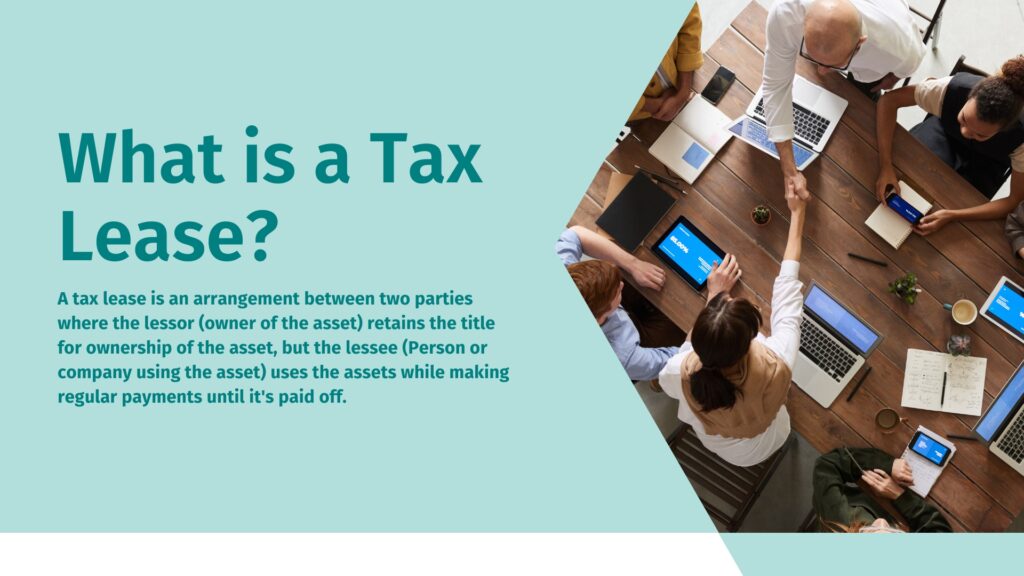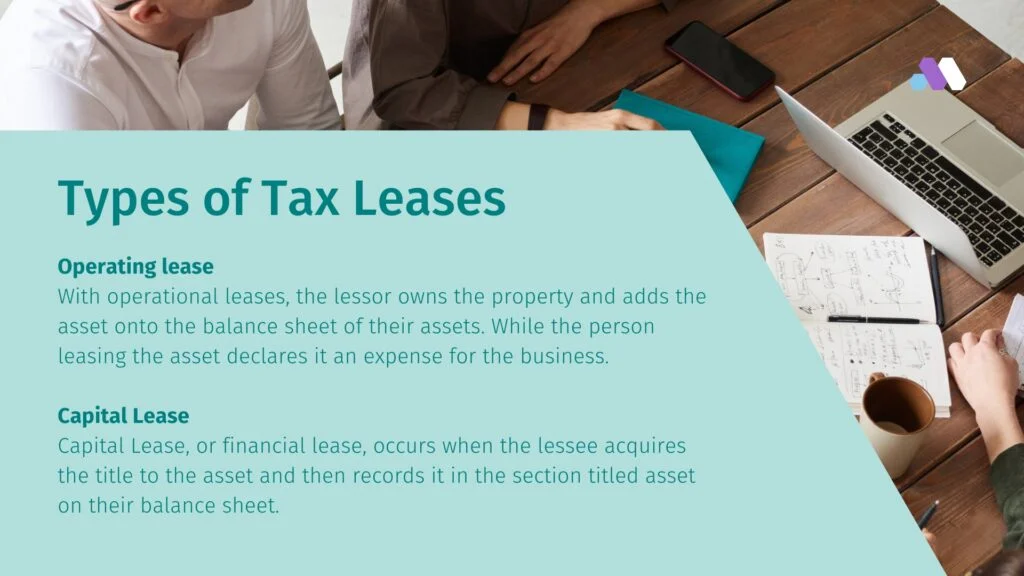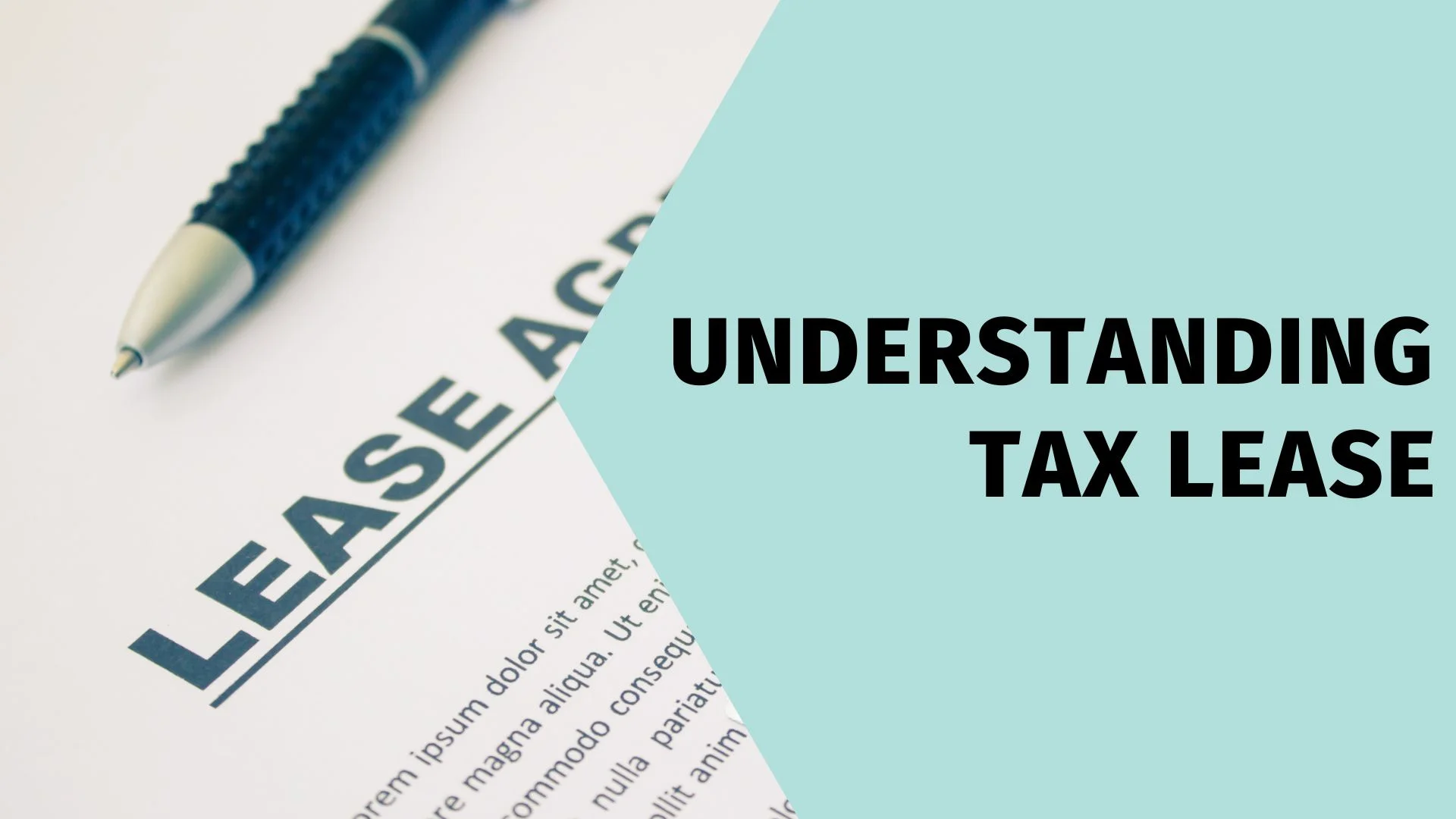If you are a business owner or a manager and have the task of buying or renting new equipment for your business, this is a perfect way for you to finance your equipment. Before you make any decision in this field, You should have a working knowledge of what a tax lease is and what other options you can consider.
Hence, in this post, We will study what a tax lease is, how it works, how it differs from an operation lease, and what its benefits are.
What is a Tax Lease?

A tax lease is an arrangement between two parties where the lessor (owner of the asset) retains the title for ownership of the asset, but the lessee (Person or company using the asset) uses the assets while making regular payments until it’s paid off. The lessee gets the main advantage here by leasing the asset, they benefit from paying any depreciation cost, and from the tax deductions because of the lease.
Here’s a tax lease example to make it clearer: Imagine a business leases a machine from a company. What happens here is that the company (Lessor) still has the ownership title to the machinery, but the business (Lessee) gets to use the machinery and they can put it down as business expense as they haven’t purchased it yet, lowering their taxable income. This is because the machine hasn’t been added as the business’s asset yet.
ALSO READ ABOUT How to Buy Land With No Money
How Does a Tax Lease Work?
In simple terms, a tax lease is one in which the lessor owns the assets and is eligible to control depreciation and pays taxes on ownership. The entity that leases the asset to the lender makes use of the asset while paying instalments, meaning that the lessor doesn’t need to pay tax on the income they earn since the unpaid lease is a category of business expenses.
For example, in a tax lease example involving a car lease, the company leasing the car does not own it but utilizes it to serve business needs and will, therefore, record it in the category of business expenses in the financial statement.
Types of Tax Leases

There are two main kinds of tax leases: operating leases and capital leases. These leases are both different in the accounting process and tax reporting.
- Operating lease: With operational leases, the lessor owns the property and adds the asset onto the balance sheet of their assets. While the person leasing the asset declares it an expense for the business.
- Capital Lease: Capital Lease, or financial lease, occurs when the lessee acquires the title to the asset and then records it in the section titled asset on their balance sheet.
Benefits of a Tax Lease
A tax lease for assets can offer several benefits for a business, especially when it comes to taxes. Some of the main benefits are:
- Tax Deductions: As the assets have not been transferred to the business’s name yet, the assets are put under business expense, making them deductible from taxable income.
- No Ownership Risk: The lessee, the person who has leased and is using the asset, does not have to worry about the asset’s depreciation or any other concerns related to it.
- Cost Control: When a business leases an asset, they don’t have to make the payment at once. The monthly instalment payment makes it less expensive than buying one time.
Final Statement
Tax leases are an ideal option for those trying to protect the income they earn from tax burdens. This method helps decrease taxable income and reduce costs in the long run, which makes it affordable for companies with smaller budgets.
ALSO READ ABOUT Tax Slabs in India for 2024: What You Should to Know
FAQs
How does a tax lease work?
A tax lease works by allowing the lessor to retain ownership of the asset while the lessee uses it and deducts the lease payments as tax-deductible expenses. This setup benefits both parties, with the lessee lowering their taxable income and the lessor maintaining ownership rights.
What is a true tax lease?
True tax leases are ones in which the lessor still holds the ownership title, which allows the owner to deduct the lease payment as an expense but not claim tax benefits related to ownership, such as depreciation. The lessee benefits by claiming depreciation, while the lease gets a reduction in tax-deductible income from deductible payments.
What is the difference between a tax lease and a non-tax lease?
The primary differentiator between a tax-based lease and a non-tax lease is that when a lease is tax-related, the owner of the lease remains in control to the point of taxation, and the lessor is able to claim lease fees as an expense. However, with non-tax leases, the lessor typically takes on taxes related to ownership, such as depreciation. However, they are not in a position to claim lease payments in the same manner.
Can you write off a lease for taxes?
Yes, it is possible to use a lease to deduct tax purposes if it’s a commercial lease that allows the lessee to write off leasing payments from expenses for business, helping to lower the tax burden. The same applies to the lease of vehicles and equipment which are for use in business.

